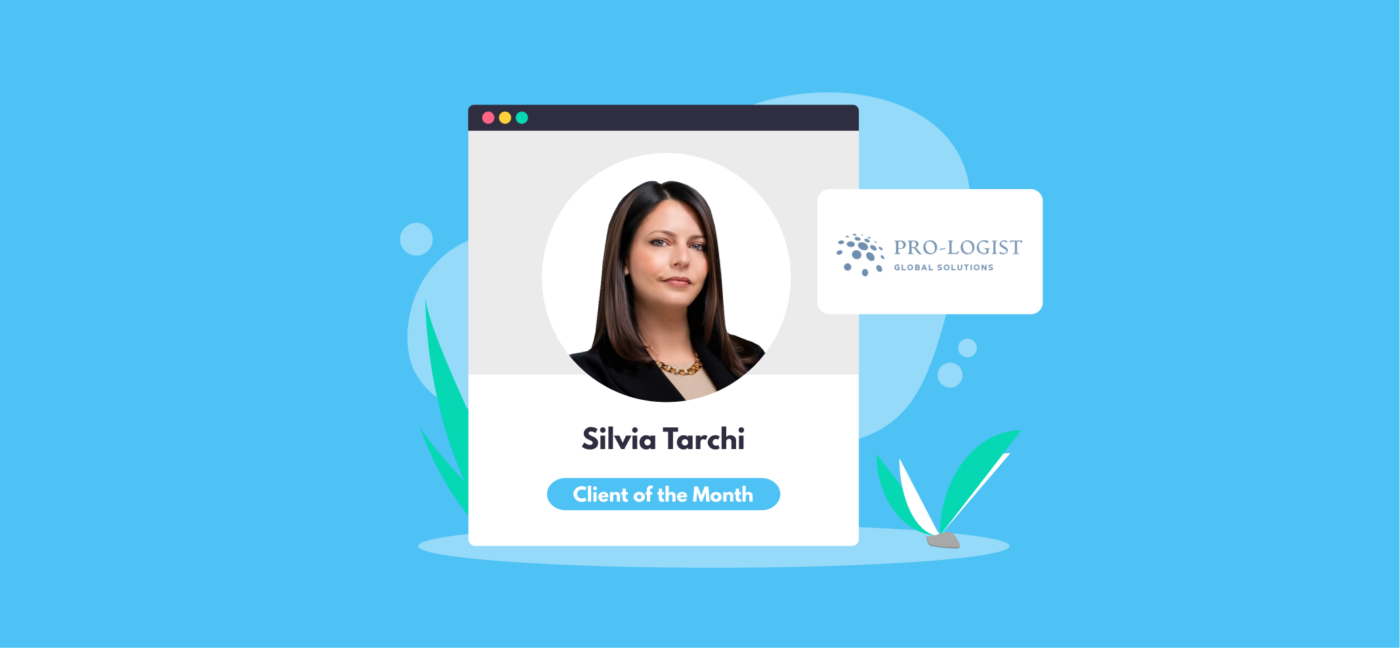

Can I Pay Different Dividends to Shareholders?
Limited companies make dividend payments to their shareholders from any profits left over after tax. The dividends that you pay out to shareholders don’t have to be for an equal amount, but your shareholders will need to have different classes of shares for this to happen. In this article we explain how dividends can be paid out for unequal amounts.
Shares are used to show ownership of a limited company – literally a share of the business. Some shareholders might own more shares than others, which means that they own different percentages of the business.
The percentage of shares owned is used to calculate the amount of dividends that a shareholder receives. Someone who owns 30% of a business’ shares will usually receive 30% of the profits, for example. Working on this basis can help to ensure that shareholders get a proportional amount according to their investment in the business.
This assumes that all of the shareholders own the same type of shares, but there might be times that a company wants to pay them in a different way. Creating different classes of shares, sometimes called alphabet shares, allows a company to do this.
What are alphabet shares?
The term ‘alphabet shares‘ describes the different classes of shares that can be issued by a limited company. They tend to be labelled in the company’s accounts as A shares, B shares, C shares and so on, hence the name alphabet shares!
Creating different classes means that each type can be assigned different rights. These could be voting rights, or the percentage of dividends that the shareholder of that particular class of share is entitled to.
For instance, an ‘A share’ shareholder might be paid dividends at a different rate to a ‘B’ shareholder. A ‘C’ shareholder may not have the same voting rights as a ‘B’ shareholder. This means that you could have a variety of shareholders with very different dividend payouts and voting rights.
What are the benefits of paying different dividends out?
If you’re just dividing by share ownership, the benefit is that it’s a fair and simple way of dividing company profits. But what about alphabet shares?
It lets the company move beyond a pro rata basis of ownership, and instead pay shareholders based on their involvement or investment in the company.
- You might want to appoint family members as shareholders but not give them voting rights. For instance, if you have children that you would like to receive dividends, but they don’t need to make decisions about the business.
- Or, you might invest in a startup and own the majority of it without being involved in day-to-day operations. In that case, it might be agreed that the other directors will receive a larger share of the profits, whilst you still own most of the company.
Creating alphabet shares can become really useful in this sort of situation, giving you more control over who can influence the business.
What does this mean for tax?
Shareholders who receive dividend payments may need to pay Dividend Tax on this type of income. The amount of income they receive in a tax year, and the amount of dividends they earn, affects how much Dividend Tax they need to pay.
You’ll need to tell Companies House about the shares in your business when you first incorporate the company, or if you allot more shares later on. They’ll also need to know the details of each shareholder and what it is that they hold.
The details of what your shareholders (and different types of shares) are entitled to should be recorded in the company’s Articles of Association. This document is a bit like having written rules which set out how to run the company.
Learn more about how we can help with your limited company. Call the team on 020 3355 4047 and Get an instant online quote.
Want to learn more?
Subscribe to our newsletter to get accounting tips like this right to your inbox

Read more posts...

April 2024 Client of the Month: Pro-Logist ltd
23rd April 2024This month we spoke to Silvia, Managing Director of Pro-Logist ltd! Pro-Logist ltd | LinkedIn Hey Silvia! Tell us about your business Pro-Logist,…
Read More
The Self-Employed Guide to Retirement Planning
19th April 2024Pension planning is often something we forget about until later in life, but the earlier you think about it, the better. Everyone…
Read More
14 Accountancy Terms Explained for Startups
17th April 2024Starting a business can be complicated enough, especially with all the new lingo that crops up along the way. In this article…
Read MoreConfirm Transactions
The number of monthly transactions you have entered based on your turnover seem high. A transaction is one bookkeeping entry such as a sale, purchase, payment or receipt. Are you sure this is correct?
Please contact our sales team if you’re unsure
VAT Returns
It is unlikely you will need this service, unless you are voluntarily registered for VAT.
Are you sure this is correct?
Call us on 020 3355 4047 if you’re not sure.
Bookkeeping
You will receive our bookkeeping software Pandle for free, as part of your package.
You can use this to complete your own bookkeeping, or we can provide a quote to complete your bookkeeping for you.
Please select and option below:
Call us on 020 3355 4047 if you’re not sure.


If I pay 2 shareholders the same dividends one year, can they receive different amounts of dividends the year after?
Hi Amanda Thanks for your message! Dividends are paid from profits, and these can fluctuate, so you don’t have to pay a shareholder a dividend payment at the same amount each year. The amount that you pay as a dividend depends on what type of shares the shareholder has, so if shareholders own the same number, and same type of shares, their dividends will be the same. Each time you issue shares (or change them, such as issuing more), you’ll need to let Companies House know, so they can update the information they have about your company. I hope that… Read more »
Di I have to inform Companies House of every shareholder and the equities they hold?
Can 2 people with B shares be given diffrent amount of dividends? Or are all B shares given the same rate of dividends? I.e. if I received £2,000 with 5% of companys B shares can somone else receive £3,000 with 5% B shares.
Hi Gruff
Good to hear from you. Each class of shares would need to have the same allocation of dividend, so two people with the same number of B shares will receive the same amount of dividend. If the company needed different amounts for the same shareholding, they would need more alphabet shares (C, D, E… and so on) depending on how many people require them. I hope that helps, but please do get in touch if there’s anything else we can do for you.
Best wishes
Elizabeth
Hi
Once we have the A and B shares up and running for two Directors, say, can the % split of profit via dividends by varied each time a dividend is declared? For example, if each director’s investment, and level of additional involvement changes on a regular basis, then it would be ideal to be able to split the profit differently each time based on an agreed split.
Hi there, Thanks so much for your message. It’s important when those A & B shares are set up that they’re set up with different rights to receive dividends (this isn’t automatic), but as long as those different rights are set up, then you can chop and change the dividends each month as much as you like. It’s up to the directors, jointly in a board meeting, to decide what dividends should be paid each month. You’d still technically own 50% of the company each (presumably 1 share each, out of a total of 2 shares), but the important part… Read more »
Can a Class B shareholder take a higher dividend than a Class A shareholder if agreed by both parties when the Class A shareholder does not wish to take such a high amount?
Hi Anthony
Thanks very much for your message. You’re right, different share classes can indeed be assigned a different share of the company’s profits, but it’s important that this is consistent (that is, dividends are always taken in those ratios by that particular class of shareholder). This article might also help, but just let us know if there’s anything at all we can help with!
Best wishes
Elizabeth
So if you had a simple 5 ordinary shares alloted to 5 different people(1 ordinary share each), their dividend would be equal. Does that mean each shareholder has 20% of the company or they all own 100%?
Hi Farooq
Thanks for your message. Yes you’re right, 5 people with an equal amount of the same type of shares would receive equal dividends, and each would own 20% of the company. I hope this is useful, but let us know if you have any questions and we’ll do all we can to help!
Best wishes
Elizabeth
Hi, If I’m going to pay different rates of dividend to different share classes where would I need to declare which class gets which rate? in the filed accounts?
Hi Stuart Thanks for messaging. So, when you issued the shares these would have been recorded as ‘prescribed particulars’ in the Statement of Capital, to show the different classes of shares in use, and what the shareholders are entitled to. To pay dividends you must hold a directors’ meeting to ‘declare’ the dividend, and record the minutes of the meeting, even if you’re the only director! You must also create a dividend voucher for each dividend payment. The payments are recorded as a transaction in your bookkeeping records. We have a guides on this on our support pages, or give… Read more »
Thank you Elizabeth
Hi, I am a director in a company. There are another 3 directors, we all have equal 25% share in company. The reserve pot is £100,000 at year end, if I decide to leave and take the £25,000 owing from the reserve is this treated as a dividend? The other 3 directors do not want to take a dividend. Thank you
Hello there Thanks for your message. As long as you all have an equal number of the same type of shares then yes, you’ll receive the same amount, although dividends are normally paid following the agreement of the other directors if you all have the same voting rights. If they’re not yet ready to declare dividends then unfortunately, these cannot be paid. If you do decide to leave the company then what happens to your share (and to your shares) might be affected by any original agreements you made when you set up the company and issued shares. I hope… Read more »
Very helpful article, thanks. One question if I may, you mention that… ‘It’s important when those A & B shares are set up that they’re set up with different rights to receive dividends (this isn’t automatic), but as long as those different rights are set up, then you can chop and change the dividends each month as much as you like.’ How do you set up the shares with the different rights that you mention above? And can it be done once the shares are already set up (e.g. if the shares have already been issued as a separate class,… Read more »
Hello there Thanks for sending us a message. So, when you first register the company you’ll need to provide information about the number and type of shares that the company has, and the details of each shareholder. This is known as a statement of capital. You’ll also need to provide the ‘prescribed particulars’ which explain what rights come with each type of share. You can make changes at a later date but, depending on the voting rights that they’re entitled to, you may need the agreement of the other shareholders and directors before making any changes. I hope this is… Read more »
Hi Elizabeth I also have found this enlightening thank you 🙏 My question is definitely on the same topic and I have been having real trouble trying to find the answer ! My husband set up a limited company with myself and I own equal shares in in this limited company ,owning half the company each and having the same rights but with different classes of shares him 50% A shares me 50% B shares,initially in case we wanted to pay a dividend payment to particular class of share without having to pay the other, you say in another reply… Read more »
Hi Fay Thanks for your question! It makes it sound very formal doesn’t it? Basically, the company (and the people who run it) must be able to show that the decision to issue dividends was made through the proper channels, and with the agreement of anyone in the business who has authority to make such a decision. So, the meeting doesn’t need to be a formal meeting as such, but you will need a document which shows the decision being made, that everyone agrees, and the value of the dividend that will be paid out to each shareholder. The directors… Read more »
Hi,
My son is in the process of setting up a company 60/40 ownership. Founder A will get 60% “A Shares”, and Founder B will get 40% “B Shares”.
Are there any risks to look out for as the minority shareholder within this type of arrangement? e.g. If Founder B wishes to exit at some point in the future, will their shares be worth anything?
Hypothetically, with 100% of the A Shares / 60% of the aggregate number of shares in issue, could Founder A with majority just decide that B Shares get no dividend?
Hi Jeff Thanks for getting in touch. Because the company has issued different types of shares, and each class of shares can have its own rights, this depends on what each type of share entitles the holder to, so it’s difficult to say for sure without knowing more. One way to check this is if your son takes a look at the shareholders’ agreement or the company’s constitution (also known as the articles of association). More often than not, one class can declare a dividend different to the other. The value of the shares when selling them is determined by… Read more »
Hi, I am in a business (limited company) with a partner. We each hold 1 ordinary (A type share) i.e. 50% ownership. My partner is likely to step back operationally from the business for health reasons and we would like to acknowledge the greater input from myself (going forward) by increasing the balance of dividend payments in my favour. Would a legitimate way of doing this be simply to issue more ordinary shares to me – thereby increasing the % of the business that I own and splitting future dividend payments along the new proportions?
Thanks
Hi Keith Thanks for your message. Yes, you can issue additional shares, although in situations like this it’s more common to transfer shares from one partner to the other. Just remember to let Companies House know! Another option is to change the type of shares that you each own. These are sometimes known as share classes, or alphabet shares. For instance, if your share remained an ‘A’ share, and your partner’s share became a ‘B’ share, and they have different rights and entitlements assigned to them. I’ve linked to the guide above, but in short you’ll need to amend the… Read more »